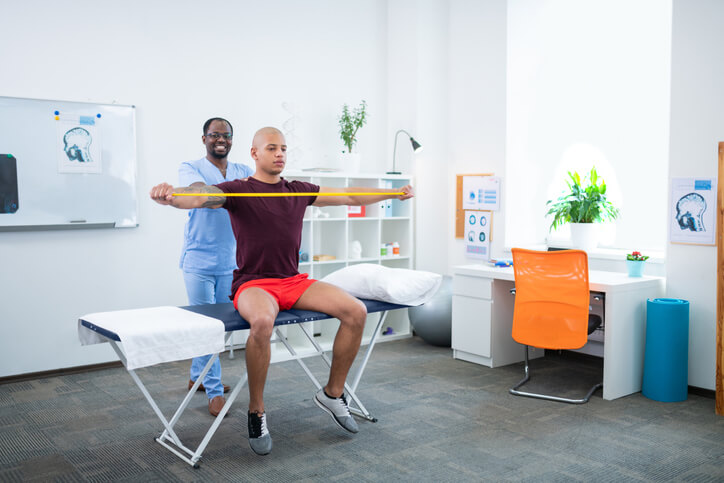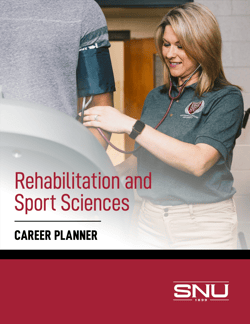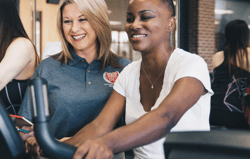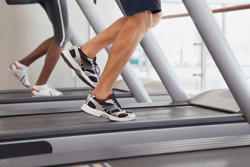-
Programs
Not Sure Where to Start?
- Associate Programs & Certificates
- General Studies
- Associate of Arts in Business
- Physical Therapist Assistant
- Professional Services & Certificates
- Special Education Bootcamp
- View All
- Undergraduate Programs
- Business Administration
- Criminal Justice
- Cybersecurity
- Education
- Family Studies and Gerontology
- Healthcare Administration
- Organizational Leadership
- Accelerated General Education
- View All
- Graduate & Doctorate Programs
- Doctorate of Education in Administration & Leadership
- M.A. Administration of Special Ed.
- M.A. Applied Psychology
- M.A. Educational Leadership
- M.A. Sports Management & Administration
- M.A. Teaching
- MBA, 12- 18 months
- MBA - Healthcare Administration
- Master of Organizational Leadership
- M.S. Counseling Psychology
- M.S. Exercise Science - Health & Human Performance
- M.S. Exercise Science - Wellness
- M.S. Instructional Design Technology
- M.S. Management
- M.S. Physician Assistant
- Alternative Certification (Teaching or Special Ed.)
- View All
- Resources
- Tuition & Aid
- Military
Master of Science in Exercise Science- Health and Human Performance
Learn to promote good holistic health and improve your own life.

"The program allowed me to explore different areas of human performance that intrigued my interest to continue to learn more and work for a certification. The program did meet my expectations. I plan on using this degree to further my education as well as my knowledge on the science of exercise."
Jose Pena
M.S. Exercise Science Graduate
- PROGRAM OVERVIEW
- UPCOMING START DATES
- FREQUENTLY ASKED QUESTIONS
- COURSE DESCRIPTIONS
- FACULTY
- ADMISSIONS
- LOCATIONS
- PROGRAM RESOURCES
Program Overview
The Master of Science in Exercise Science program examines the critical role exercise plays in health, wellness, and disease prevention. It also highlights the factors that produce optimal and elite human performance. Graduates will be able to research, analyze, and interpret data in human performance. Students will also learn how to seek grant funding for non-profit health organizations. The program prepares students for careers in areas of rehabilitation and sport sciences, sports medicine, and clinical exercise. Graduates with degrees in exercise science will be prepared for positions as cardiac exercise specialists, exercise rehabilitation specialists, strength and conditioning coaches, and personal trainers. Individuals will also be prepared to teach Exercise Science in college and university settings.
Upcoming Start Dates
Request More Info
Fill out the form below and an enrollment counselor will reach out!
Courses
The Exercise Science curriculum is designed to give students an in-depth understanding of health and how it relates to promoting health within the community or achieving ultimate human performance. All students take core classes, choose an elective, and then take classes in their designated track.
Credit hours: 3
This course provides an overview of the various aspects of contemporary health, wellness concepts and human performance. The curricular emphases provides and overview of historical perspectives, current status of health promotion, ethical principles, exercise science and risk reduction.
Credit hours: 3
This course is designed to advance students’ written communication skills. Emphasis will be given to scholarly writing style, evaluation and synthesis of research, and APA citations and references.
Credit hours: 3
This course will discuss physical activity epidemiology in light of various diagnoses including heart disease, cerebrovascular disease, disease and mortality, obesity, chronic disease, cancer/immunology, musculoskeletal system, mental health, and special populations. Research and measurement concepts of physical activity, fitness, and maintaining an active lifestyle will be utilized.
Credit hours: 3
This course provides students with the opportunity to gain insight and understanding about the law and its implications on professionals in the fields of health, wellness, sport, and fitness.
Credit hours: 3
This course is a study of the physiological, psychological, and social aspects of physical activity for older adults. Topics covered include an overview of aging, benefits of physical activity throughout the lifespan, and fitness assessment and programming options for older adults.
Credit hours: 3
This course examines a range of topics on human nutrition including nutritional parameters of athletic performance, intervention planning, energy production, the energy nutrients, vitamins and minerals, principles of balanced diets, timing and composition of intakes, hydration, weight management strategies, and nutritional needs for special situations.
Choose one elective course.
Credit hours: 3
This course provides knowledge and application of the grant writing process with specific focus on the health and wellness fields. This will include the development of skills required for Request for Proposals, writing, budgeting and submission of grants. The course will provide examples of sources to obtain grants and the differences that exist among different granting agencies. Students will also have the opportunity to develop a project for program design, implementation and evaluation for a health related organization.
Choose one elective course.
Credit hours: 3
This course is an introduction to research methods to analyze professional literature in exercise science. The course will explore both quantitative and qualitative research methods, including descriptive and inferential statistics. Special emphasis will be given to planning, conducting, and reporting of research as well as applied statistical analysis and interpretation of data from the field of exercise science. Students will produce an original pilot research project including statistical design.
Health Promotion & Wellness Track
Health & Human Performance Track
Credit hours: 3
This course is a study of psychological theories and techniques that could be used to enhance the performance and personal growth of sports and exercise participants from youth to elite levels.
Health & Human Performance Track
Credit hours: 3
This course provides in depth inquiry into the acute responses and long term adaptations of the human body to various types of exercise from the cellular level to the entire system. Emphasis is placed on the physiological demands of exercise, metabolic requirements of exercise, and physiological changes that occur in response to exercise. Other factors that can alter the physiological response will also be explored, including gender, age and environment.
Health & Human Performance Track
Credit hours: 3
This course is designed to increase the practical and theoretical knowledge and understanding of the physiological, biomechanical, and administrative aspects of designing and supervising strength and conditioning programs for various populations. Objectives include conducting activity-specific testing sessions, designing and implementing safe and effective strength training and conditioning programs and providing guidance regarding nutrition and injury prevention. This course will include both classroom instruction and hands-on experience.
Health & Human Performance Track
Credit hours: 3
This course prepares students to utilize scientific rationale to design, implement and supervise exercise programming for patients with chronic diseases, conditions and/or physical dysfunctions of the cardiovascular, pulmonary, metabolic, musculoskeletal, neuromuscular, and immunologic systems. Students will interpret information from pre-exercise screening and exercise testing and will apply this information to appropriate exercise intervention protocols. Students will be prepared to pursue certification as an ACSM Registered Clinical Exercise Physiologist.
Health & Human Performance Track
Credit hours: 3
This course will explore the biomechanics of the upper extremities, axial skeleton, and lower extremities. Emphasis will be placed on neuromuscular control of dynamic activities, in particular gait and running analysis. Concepts will be discussed with consideration given to biomechanical principles, force couples, stabilizing musculature, and recognition/normalization of improper mechanics.
Meet our SNU Faculty
Dr. Sylvia Goodman
Program Director
Sylvia Goodman, EdD, ATC, obtained her Master's degree in Athletic Administration from Miami University and completed her Doctorate from Boston University in 2009. Her dissertation work was a sports sociology study of spectator behavior and crowd violence in the Boston Garden during Bruins’ games. In addition to the Doctorate of Education, additional graduate hours were completed in Advanced Exercise Physiology from Univ. of Massachusetts, Boston and a post-doctorate certificate in Anatomical Sciences from Oklahoma University Health Science Center (2010).
Recent publications include “An Examination of Ethics Education in Sport Management Programs” at the American Kinesiology Association meetings (2017). Also accepted for the presentation was “A Comparison of Ethics Education in Graduate and Undergraduate Sport Management Programs at the North American Society of Sport Management Conference, (2018). Sylvia submitted a paper for the NASSM conference in May 2019 entitled The Utilization of Portfolio Assessment of Student Learning in Graduate Sport Management Education.
Dr. Goodman writes: “Upon completing my master's degree, I began my career as a faculty member and Head Athletic Trainer at Eastern Nazarene College. My professional service experience includes working as an athletic trainer for the Colorado Springs Olympic Training Center, the Pan Am Games, the Olympic Games, the US Figure Skating Championships, and the Boston Marathon. Additionally, I served as a Drug Control Officer for USADA for many years. Through these experiences, I have gained valuable insight into national and international sports administration.”
Read LessAdmissions Steps
Enrolling at SNU is a simple process. With rolling start dates, there’s no need to wait months at a time to begin your educational journey. Once you have earned your bachelor’s degree from an accredited university and completed prerequisite courses*, take the following steps:
Step 1. Apply online at degrees.snu.edu/apply
Step 2. Complete your FAFSA at fafsa.gov using school code 003149
Step 3. Send official transcripts* to SNU at pgsadmissions@snu.edu or ATTN: SNU PGS Admissions, Southern Nazarene University, 6729 NW 39th Expressway, Bethany, OK 73008.
*Prerequisite courses:
- Health and Human Performance Track: Exercise Physiology or Anatomy
Locations
Bethany Campus
6729 NW 39th Expressway
Bethany, OK 73008
Phone: +1 (405) 491-6332
pgs@snu.edu
Program Resources
Getting started is easy
Request more information
Ready to apply? It takes 5 minutes!
Apply NowApplication Requirements
- Meet the admission requirements for your specific program
- Apply for an Undergraduate or Graduate Program
- Submit transcripts
- Be admitted, get advised, and enroll

Text With an Enrollment Counselor
Need more information about SNU’s Exercise Science degree program? Text with one of our enrollment counselors today.







.png?width=200&height=220&name=2024_OnlineU_Best_Colleges_Badge%20(1).png)




.png?width=250&height=328&name=2019-12-IG-SNU-ChooseYourPath%20(1).png)


